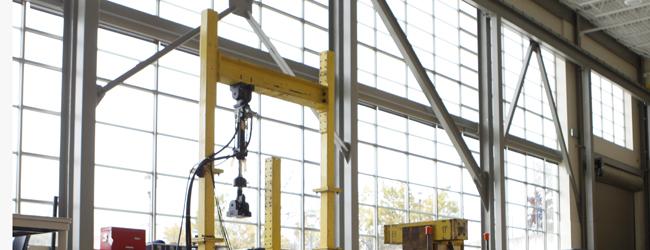Experts have often heralded degrees in science, technology, engineering and math – better known as STEM – as lucrative and secure, since many tech companies seem to be creating positions faster than the graduation rates of qualified individuals.
With such gleaming job prospects for STEM-related degree holders, it makes sense that universities like Marquette are trying to train a workforce to fill the vacancies.
But lately there’s been a debate about whether STEM degrees are actually as lucrative as believed.
Some are asking whether STEM degrees have a “shelf-life,” or if technical skills lose their relevance over time after graduation. Others worry that older STEM workers are at risk of being forced out of their jobs by younger workers with more up-to-date skills.
Rich Merkel, executive director of STEM Forward who advocates for tech in education, agrees that there is an inherent risk with technology-related degrees when the tech is rapidly changing, but said companies still need people who can solve problems.
“The familiarity with the core concepts, and the ability to solve those problems is just as important as the technology used,” Merkel said.
Peter Hanson, a junior in the College of Engineering, said he isn’t worried about his skill-set becoming obsolete post-graduation because learning the new technology comes with the territory.
“Technical degrees – yeah, they change – but hopefully you’ll be a part of that change,” Hanson said. “You should be learning as you’re innovating.”
Census data shows the majority of the workforce is under the age of 45, with the largest percentage (35 percent) being 25 to 34 years old.
The question then becomes whether older workers – who would typically be paid higher wages than new graduates – are being pushed out of their jobs in favor of younger workers.
Merkel said he attended many meetings where workers expressed discontent over what he labeled the “silver tsunami,” referring to the impending retirement of many older STEM workers.
These people, who have been in the field for 10 or more years, often don’t feel as if they have as much “employability” as the younger workers, but Merkel was quick to argue talent is the more important factor.
Hanson said he is also not worried about his job prospects down the road because there will always be a need for engineers in various positions, some of which are seemingly unrelated to the profession. An example he gave was in law offices or investment banks.
“It’s more a way of thinking than a profession,” Hanson said.
This follows a survey released last June by the U.S. Census Bureau that found 75 percent of people with a STEM degree didn’t hold a STEM-related job.
The final piece to the debate revolves around the H-1B Visa, which allows non-immigrant aliens with highly specialized skills – usually in technology-related fields – to apply for work placement in the United States.
The program was originally intended as a way for technology companies to fill much-needed vacancies, but some have argued companies have capitalized on hiring H-1B Visa-holders as a form of cheaper labor, undermining American workers’ ability to get STEM jobs.
Merkel said the controversy is somewhat overstated, mostly due to the overwhelming need for workers.
“Anytime there are more workers in the marketplace, it affects the process for U.S. graduates (to find work),” Merkel said, “but the need for STEM workers clearly outstrips the competitive environment.”
Merkel said he’s anticipating the need for STEM graduates to increase, and he doesn’t see any sign that it will start slowing down soon.
“Every year ManpowerGroup does a Top 10 ‘hardest jobs to fill’ list, and every year seven or eight of the jobs are STEM-related.”



